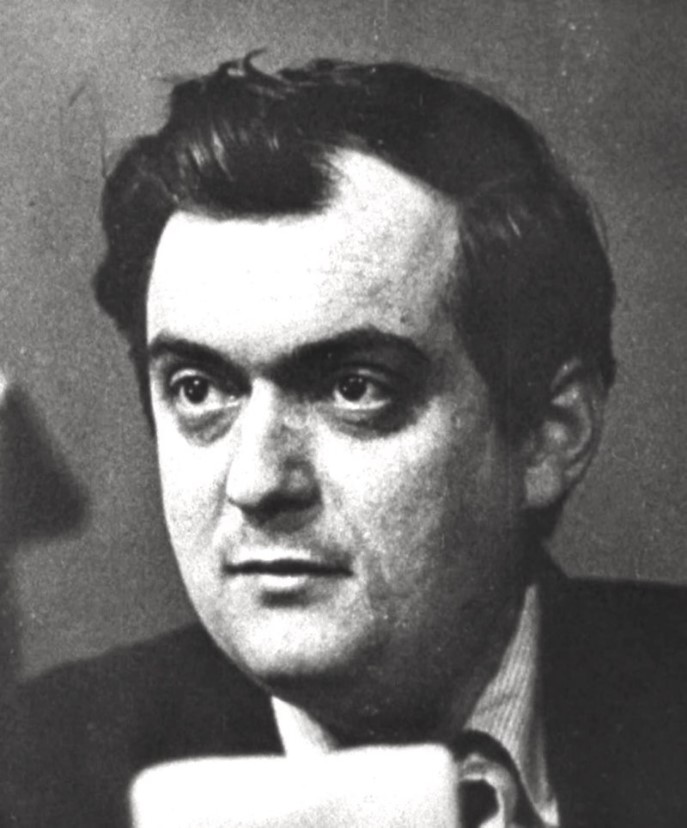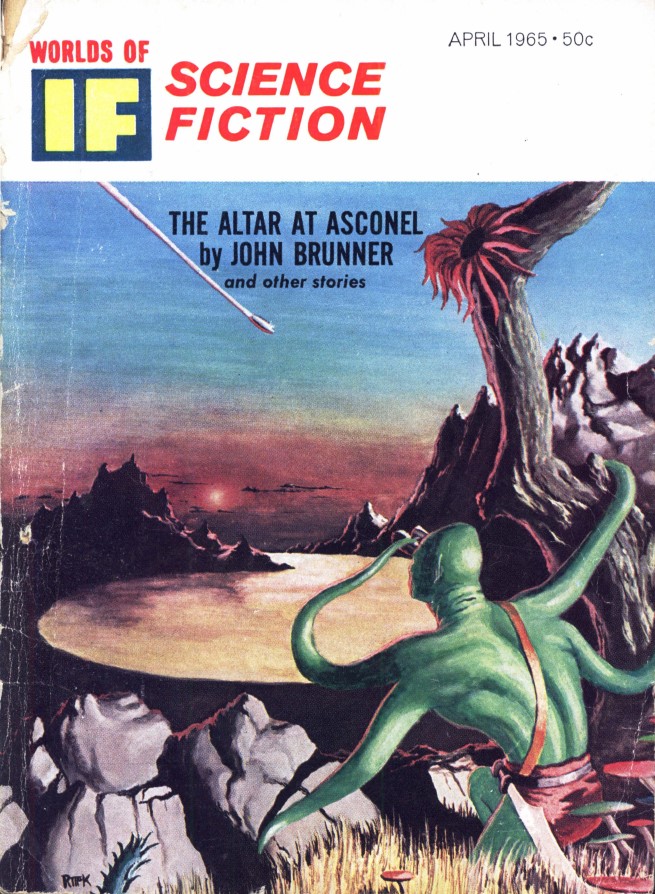
by Rosemary Benton
A happy duo
The newest Ace Double is an absolute blast. On the one side is veteran writer John Brunner's new novel The Altar of Asconel, which was previously covered in serialization by David Levinson. On the other side is the first solo project of science fiction fandom superstar – Ted White. Android Avenger! The very title of this book sings with promise of action and adventure, and while it certainly delivers I would say that it goes well beyond a short fun read.

Out of Place in Plain Sight
The story takes place in a future on Earth where maintaining sanity has become the objective of the human race. There is an orderly mundanity to everything, and deviation from this norm in any form, from rebellious fashion choices to antisocial tendencies, is punishable by death. Such executions are merged into the daily lives of the citizens of the metropolitan areas. Just like jury duty, anyone of legal age can be called upon to be part of the assembly that collectively pushes the button on the condemned's electric chairs.
Living his own mundane life is Bob Tanner, a resident of Manhattan who, oddly shaken and distracted after attending to his Citizen's duty as an executioner, has a mishap and gets his leg mangled in one of the city's moving walkways. Upon waking up to find that he is entirely healed from such a grievous injury, he overhears some disturbing information about the results of the scans that were run on him while he was unconscious – his bones are made of metal and he may not be entirely human.
Since extreme physical deviancy is also considered an unacceptable trait, Bob realizes that he must run for his life. Planning on journeying out into the countryside where there are fewer police and mental scanners, Bob manages to escape the hospital. Unfortunately his plans quickly careen off course when control of his body is seized from him. Piloted by unknown individuals for unknown reasons, Bob is made into the murderous pawn of one of the best kept secret societies in the city.
Ultimately our protagonist is put in the precarious position of balancing his human identity with the purpose for which an automaton such as himself was created. The story ends on a relatively upbeat note with Bob successfully regaining his autonomy, accepting his mission as an android, and still maintaining a precious, personal human identity. But after reading White’s book and thinking on it, one is still left wondering if technology unknowingly guiding humanity is such a good thing after all.
A Little Background
Ted White is an extremely active member of the fandom community. He is a regular contributor, editor and a fanzine founder. He’s also got an impressive number of letters and essays reviewing, dissecting, and speculating on the numerous subgenres and authors out there.

Currently White is the assistant editor of The Magazine of Fantasy and Science Fiction. To date this opinionated author has four professional writing credits to his name: three collaborative stories (two with Terry Carr and one with Marion Zimmer Bradley) and of course, Android Avenger. With such a passion for the genre, it was only a matter of time before White began releasing his own lengthier original works of science fiction.

Breaking Down the Components
First and foremost, Ted White is to be congratulated on telling a compelling story of android self-realization mixed with a heavy dose of noir elements. The intensity of Bob Tanner's character as he struggles with his body betraying societal norms, his self doubt when he begins to question his own mind and consequently his basic sense of self – all of this speaks to the fatalism and moral ambiguity of noir. Yet it is encased in a science fiction paperback.
This blend of genres in turn segues nicely into White's talent for writing action sequences that are clean cut and descriptive without being too wordy. The events of this book are fast paced. So much so that the reader, like the protagonist himself, might feel thrown and unable to get their feet under them before they are swept up in another scene. It’s destabilizing without being disruptive to the flow of the novel. It’s just enough to keep us guessing at what will happen next right there alongside Bob.
Finally, White is to be commended on the excellent job he does writing the protagonist's first person narrative. Successfully accomplishing this type of narration is no small feat for a writer. It's very easy for the tension to be sucked from a book if the storyteller is untrue to their inner voice, specifically in terms of their changing perspective and the information they are aware of at any given point in the story.
But in Android Avenger the reader is never given too little to work with, and even when the events get pretty surreal it's all brought back down to Earth with well written dialogue and succinct descriptions. It may not be the deepest intellectual exploration of humanity and technology, but judged on sheer enjoyability this book is well worth a five star rating.
That puts it well above what my colleague, David, rated Altar, but ACE Double M-123 is still well worth picking up!
Ace Books: Pirate Publisher?

by Erica Frank
In addition to its usual science fiction double, this month, Ace is releasing the second and third books of Tolkien's famous Lord of the Rings trilogy. The first, Fellowship of the Ring, has been selling amazingly well at its new low price of 75¢, a scant fraction of the former hardcover price. Ratatosk 12 had a brief review of Fellowship:
I am not all that crazy about Jack Gaughan's cover (tho other, less critical Tolkienists have expressed satisfaction with it), and there is no mention that the title illo is borrowed from the d/w of the American edition b*u*t: illos are not a book, and the fact that the volume is now available at less than 1/6 of the original U.S. price is a Very Good Deal. The typography is clear, and I have as yet found no typos to stumble over in reading.
While professor Tolkien was adamant that his works not be published in so "degenerate a form" as paperback, it appears that Houghton Mifflin, the publisher of the U.S. hardcover editions, failed to properly copyright them — and so the works are in the public domain here.
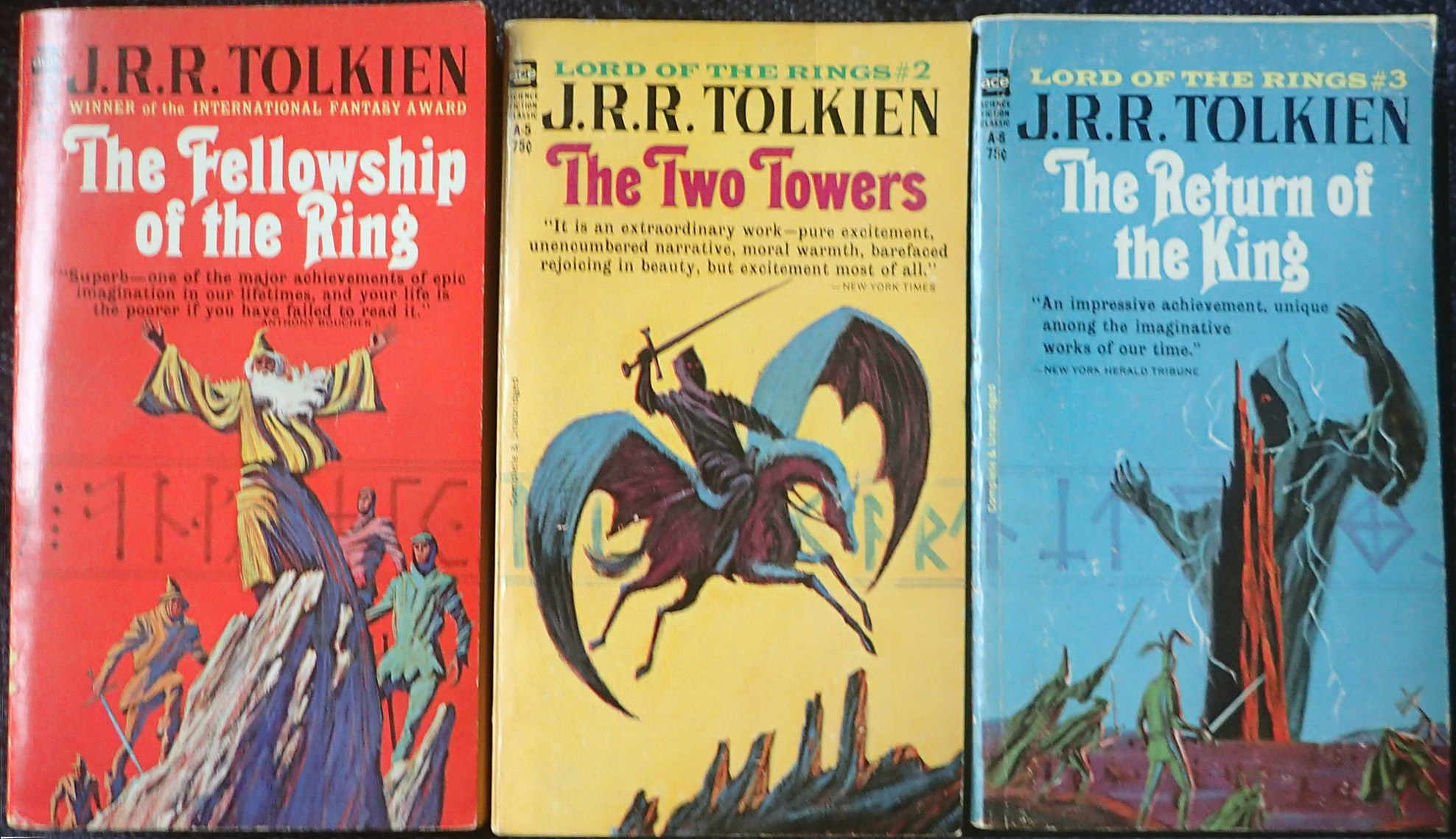
Photo by Gwydion M. Williams
Fanzine Focal Point 8 mentions a few of the details:
Houghton Mifflin, the hardbound publishers of the Ring Trilogy in the United States, was either too cheap or too stupid to have the finest fantasy epic of our century copyrighted in the United States; they ran, instead, a notice that the book was copyrighted in England, which only protected the work until it was published in the United States.
The way copyright law works, in this case: Nations that have joined the Universal Copyright Convention of 1952, agree to honor the copyrights of member states' works as if they had been published in their own country. So: a work copyrighted in the UK, is protected in the US; a publisher can't just grab a book and publish it here. However… once it's published here, it's subject to normal US copyright law, not the UCC. By publishing it in the US without a proper copyright notice, the work falls into the public domain. (Or so the claim goes. I am not a copyright lawyer. Don't quote me in court.)
So Wollheim gave up on trying to arrange licensing with Tokien and decided to meet the demand of the fannish readers, and all's well in the world of epic tales of elven adventures, yes?
…Perhaps not. Tolkien has protested the publication, claiming it is an infringement of his author's rights, and his publishers in the UK and the US are working to print a new authorized edition while he investigates his legal options.
So for now… buy quickly; these editions may not stick around for long.

![[July 12, 1965] A pair of Aces (July 1965 Galactoscope)](https://galacticjourney.org/wp-content/uploads/2020/07/650712covers-672x372.jpg)

![[April 2, 1965] SPEAKING A COMMON LANGUAGE (May 1965 <i>IF</i>)](https://galacticjourney.org/wp-content/uploads/2020/03/IF-April-cover-647x372.jpg)


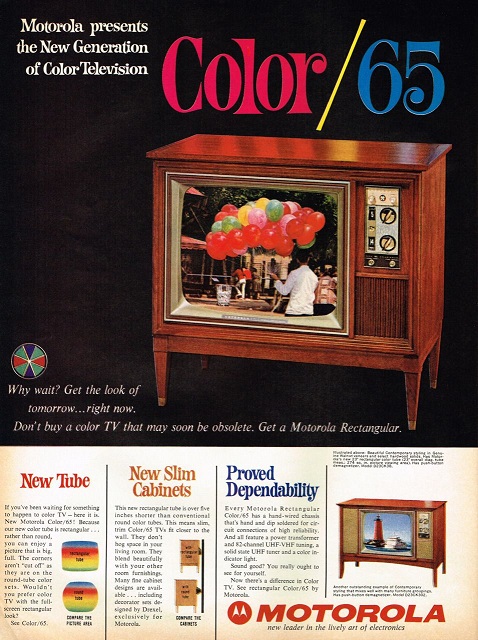
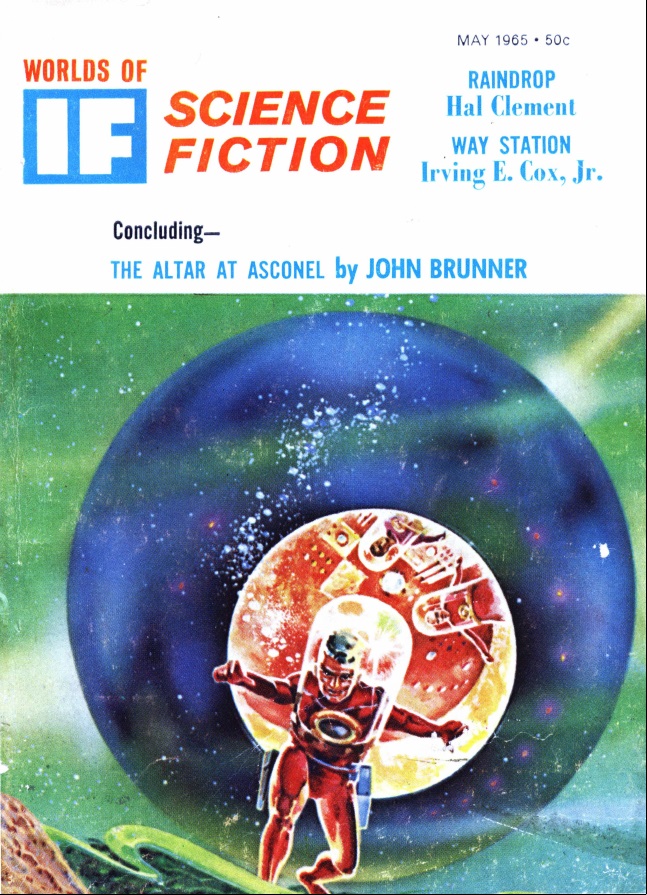
![[March 4, 1965] OLD WINE IN NEW BOTTLES (April 1965 <i>IF</i>)](https://galacticjourney.org/wp-content/uploads/2020/03/IF-march-cover-655x372.jpg)

